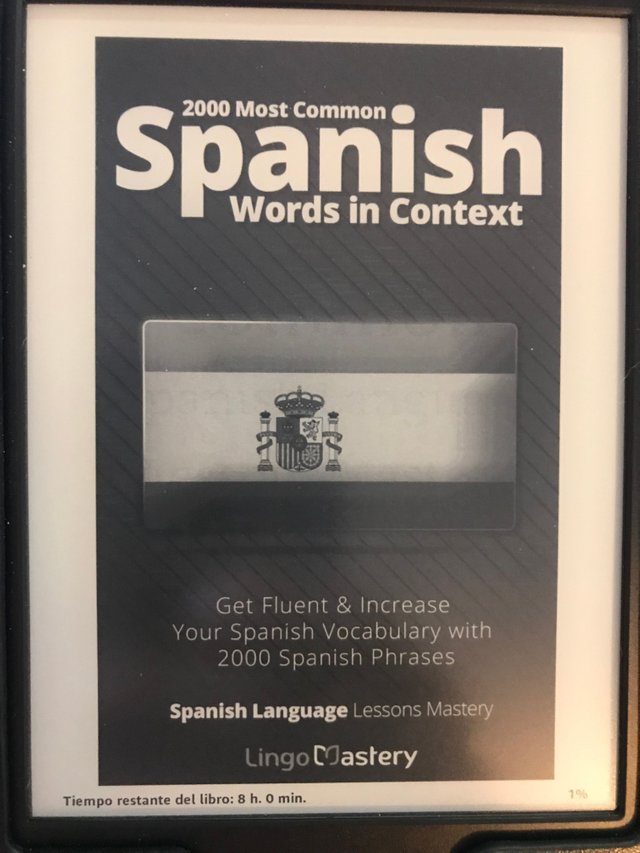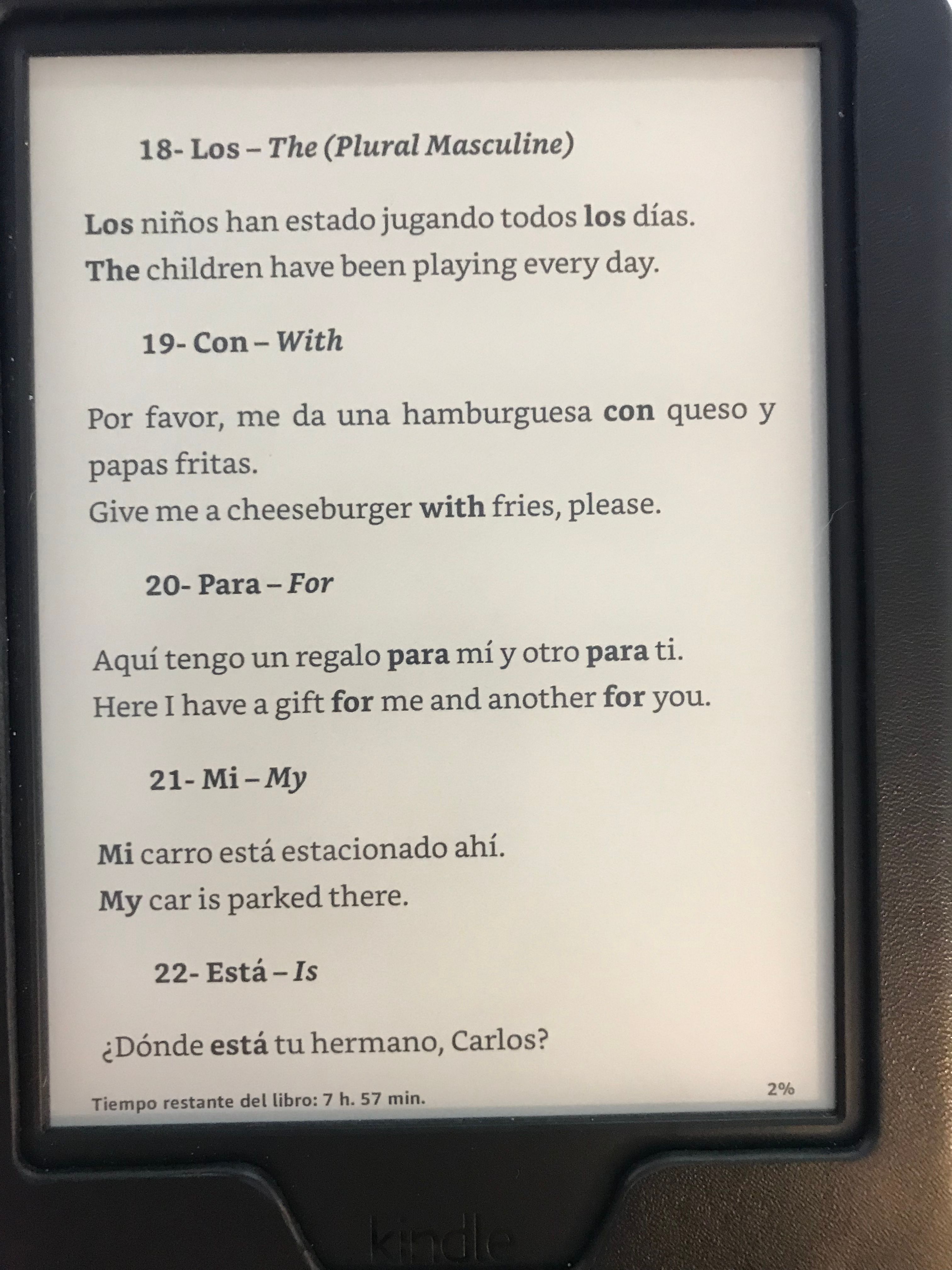I've written on this topic before but wanted to give an update on my progress. A while back, I felt like my Spanish learning was going nowhere; I felt like a wasn't making any progress. I even felt like I was regressing. However, I think that was just because we were in a new city (Guadalajara, Jalisco, Mexico) which seems to have a more difficult dialect to understand than most other cities in Mexico.
Yesterday, after spending 10 nights in Guanajuato, GTO, Mexico we arrived in Guadalajara once again. We've had a few more opportunities to talk to people in Spanish here and it already seems easier to understand than it was less than two weeks ago.
Why is there such a noticeable difference?
Since I felt like I wasn't making any progress, I started reading in Spanish.

Before this, I was doing audio lessons almost exclusively. I think audio lessons like the ones I was doing (Pimsleur and Rocket Languages) are great because they get you comfortable with Speaking the language. They also help tremendously to make you sound like a native speaker. However, I've found that they can only take you so far and eventually you'll hit a plateau.
I found this great book in the Kindle store called 2000 Most Common Spanish Words in Context. It's not an exciting book by any means but it has been an excellent resource to expand my Spanish vocabulary.

The book quotes a study that showed that if you know the 2,000 most common Spanish words, you'll be able to understand 92.7% of all oral speech.
It lists the words in order from 1-2,000 of the most commonly used Spanish words. It tells you what it means, uses it in an English sentence, and has the same sentence in Spanish.

I've been taking this book very slowly and learning every single word in the book. I already knew every one of the "Most-used words" so far but the way this book is really helping me is learning every word in each sentence. In the process, I'm expanding my vocabulary a lot, learning to spell, exposing my mind to how the words are written, and learning new verb tenses.
The above photo, for example, has "The children have been playing" translated to "Los niños han estado jugando." The most difficult part of this sentence is the past tense with "Have been playing" or "Han estado jugando." Learning these verb conjugations is really helping to accelerate my Spanish education.
Both my girlfriend and I are starting to see words all over the place that we just read and learned from this book. We think that once we learn every word in this book (not just the top 2,000), our Spanish will be much more advanced!
What are your favorite ways to help YOU learn a new language?
The best way to learn a second language is always to become familiar with it. If the sentences, words, and order of letters do not make sense to you and you feel like you're seeing hieroglyphics then something's wrong. I'd like to believe that you only found the book helpful due to your previous acquaintance with the language through the audio lessons and since English and Spanish share the same alphabet (minus some letters like the ñ) the first hurdle is overcome.
I believe the next step you need to take is start reading Spanish literature or articles about things that interest both of you. With your newfound book, a dictionary and a second mind beside you, you'll learn in no time. Best of lucks!
Downvoting a post can decrease pending rewards and make it less visible. Common reasons:
Submit
Interesting post @communitycoin. Long time ago when I was studying modern languages at The Univiversity of Los Andes in Venezuela I realized that the only way (for me) to understand English was studying Spanish. You may say what is he saying? but yes, as we were studying Spanish grammar I figured out that most of the tenses (present, past, pefect, etc) have the same meaning both in Spanish and in English. So it helped me a lot in order to study and understand English in a better way. Just a quick advice: do not translate English to Spanish and viceversa.
Downvoting a post can decrease pending rewards and make it less visible. Common reasons:
Submit
There was a point in life when I was pretty good at Spanish. Then, I didn't speak it for years, and last year I went to Puerto Rico. I realized how rusty I was, very quickly. My method, honestly though was essentially just to go try to befriend some locals and talk with them, explaining I'm trying to improve. Obviously, that's not always a very accessible option; but, if possible, talk to a native language speaker!
If I had a kindle or something of the sort, however, I'd love to use it in this fashion in my free time. I would really love to learn as many languages as possible :)
Downvoting a post can decrease pending rewards and make it less visible. Common reasons:
Submit
null
Downvoting a post can decrease pending rewards and make it less visible. Common reasons:
Submit
The spirit of learning is amazing, the experience is the same with me, with this steemit, I am more active to read, write, and deepen the English language. success for the @communitycoin team
Downvoting a post can decrease pending rewards and make it less visible. Common reasons:
Submit
Thanks for your introducing great book. Actually, now I start to learn Spanish but I dont know where to start? I like language, so I always write about this topic. I hope someday you can visit my blog and give me comments :)
Downvoting a post can decrease pending rewards and make it less visible. Common reasons:
Submit
Congrats, good way to learn another langueges, it´s important study every day.
"Remember practice make perfect"
If you want to learn how to speak spanish, read aloud, and visit spanish pages
@mjoa07
regards
Downvoting a post can decrease pending rewards and make it less visible. Common reasons:
Submit
If you want to learn how to speak spanish, read aloud, and visit spanish pages
@manuelacho1997 I have spanish post about everything https://steemit.com/spanish/@manuelacho1997/el-duro-camino-en-busca-de-la-libertad-27cff7bc7d32e
Downvoting a post can decrease pending rewards and make it less visible. Common reasons:
Submit